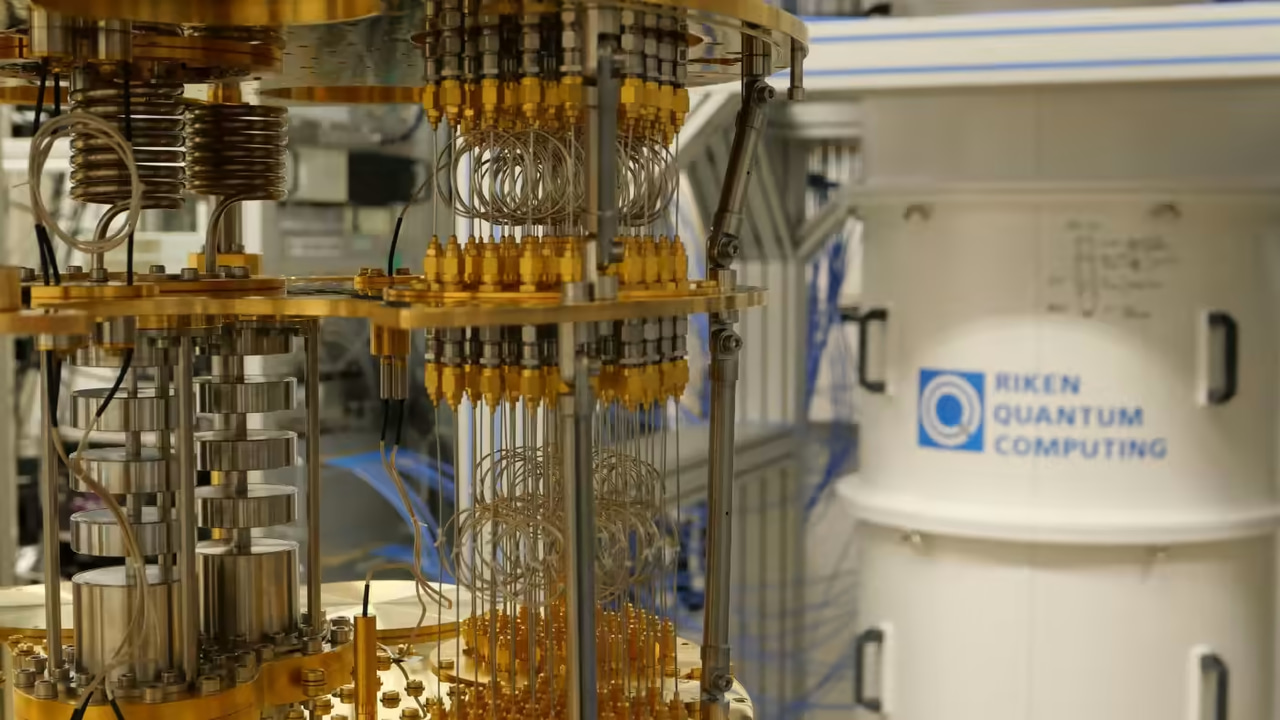
Connects decision-makers and solutions creators to what's next in quantum computing
Fujitsu Gives Quantum Progress Update
Q&A with Fujitsu’s Shintaro Sato
December 19, 2023

It has been a busy year for Fujitsu’s quantum computing business. The company unveiled a quantum-classical hybrid platform system and shared details of its potential applications. In collaboration with Osaka University, it developed a novel quantum computing architecture to improve quantum error correction. And it continued its work with TU Delft to investigate diamond-spin qubit technology.
The driving force behind all these innovations is Shintaro Sato, fellow, head of quantum laboratory, Fujitsu Research, Fujitsu Limited, overseeing all quantum computing research activities from hardware to applications. Following a presentation he delivered at the recent Q2B conference in Santa Clara, CA, Sato-san gave an update on Fujitsu's recent quantum initiatives.
Enter Quantum: What has been Fujitsu’s quantum journey to date?
Shintaro Sato: Fujitsu has been working on supercomputer technology for years. We developed the K supercomputer then Fugaku, regarded to be the most powerful in the world. However, improvements in high-performance computing (HPC) are slowing down, which is why people are now working on new architectures for specific applications – AI GPT for example.
The end of Moore’s Law is approaching, so we decided to work on a new technology, quantum computing. Last year we launched a platform to provide quantum computing as a service to our customers. We wanted to make it an easy-to-use platform for our customers so they don’t have to worry about what computing resources they use; they can just concentrate on the problems they want to solve.
This platform already included HPC and a quantum simulator, but this year we included a quantum computer – we don’t just provide quantum computing, but different computing technology altogether to help customers do the job.
What is Fujitsu’s approach to quantum hardware and software?
In quantum computing, we cover all the technologies needed, from the device level to applications, working with world-leading institutions. There are many hardware technologies and we don’t know the final solution yet, so we put the emphasis on the software.
We try to work on several types of hardware, but our resources are limited, so we concentrate on two main types of qubit technology – superconducting qubits with Riken and diamond spin with TU Delft. We are also looking into other technologies – we still have conversations with professors and companies that work on other technologies.
Applications are very important. We started collaborating with end users using our newly developed quantum simulator. Two months ago we released our 64-qubit superconducting quantum computer developed with Riken. It is Japan’s second domestically produced quantum computer. We are planning to develop applications with end users using this system.
Even Fugaku can’t simulate as many logical qubits as we'll have an operation soon. Does that mean we’re nearing the point where quantum simulation will no longer be useful?
Beyond 47 qubits, current classical computers cannot simulate quantum computers anymore. Now that we have developed the 64-qubit quantum computer, we cannot simulate this on the Fugaku supercomputer.
But the thing with quantum computers is they still produce errors so we cannot continue calculations forever, only several tens of steps at a time. So in that sense, the quantum computer is not as good as Fugaku.
Fujitsu is unusual among quantum computing companies in that it carries out research using hardware with different types of qubits. Why is it important to use the different paradigms?
There are good things about superconducting, diamond spin and ion trap qubit technology. Even in the future, we may have to use all the technologies together. Maybe only one technology will survive, but at this point, we're not so sure. That's why we work on two technologies at the moment.
Another technology may come along, and in that case, we may need to use that technology. We are looking into the possibility of several other technologies, but the most important thing is we are going to provide a platform for HPC to be used with quantum computers.
The whole purpose is to help customers solve problems, so we can use any technology so long as it’s really good.
What are Fujitsu's quantum goals for 2024?
Internally, we are planning to build a 256 superconducting qubit quantum computer for development, product development and to work with customers to develop applications.
We will continue to use the quantum computer, quantum simulator and HPC combination to develop hybrid algorithms. Our purpose is to find a really good noisy, intermediate-scale quantum (NISQ) application that has not yet been found by any players.
Read more about:
AsiaYou May Also Like




